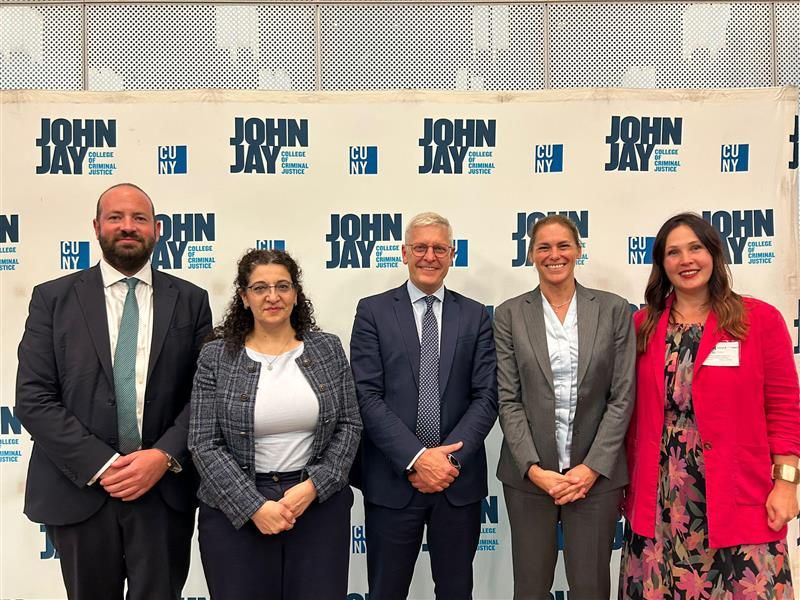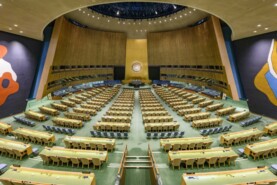Posted on 01 Oct 2025
As multilateral institutions grapple with increasingly complex organized crime networks, a persistent gap remains between high-level policy discussions and the realities facing communities and civil society actors on the ground. In September, the Global Initiative Against Transnational Organized Crime (GI-TOC) worked to bridge this divide across several UN forums, bringing field-level insights into direct conversation with international policy frameworks.
These engagements build on a side event at the 11th session of the Arms Trade Treaty Conference in Geneva in August and continues this week at Cali Biodiversity Week, with additional UN conference participation planned for the coming months. The September engagements combined Resilience Fund perspectives, thematic analysis on environmental crime and executive-level participation during the UN General Assembly (UNGA)’s High-level Week.
UNGA High-level Week
The question of how to strengthen international legal instruments against environmental crime has gained urgency as criminal networks exploit regulatory gaps across borders. On 26 September, the GI-TOC’s executive director, Mark Shaw, joined Brazil, Peru, France, the Royal Foundation and the UN Office on Drugs and Crime (UNODC) in convening government and civil society representatives during the UNGA High-level Week to examine this challenge. The discussion centred on whether a fourth protocol to the UN Convention against Transnational Organized Crime could provide the necessary legal architecture.
While in New York, the GI-TOC also participated in an event at CUNY’s John Jay College of Criminal Justice on new threats and responses to transnational organized crime. The GI-TOC presented findings from the Global Organized Crime Index and related research, as well as the challenges faced by a fragmented international community in addressing organized crime. The session explored the range of current UN responses and urged for more coordinated and strategic approaches with civil society at the centre.
Civil society representation in Vienna
At the intersessional meeting of the Commission on Crime Prevention and Criminal Justice, Bente Angell-Hansen, Chair of the Resilience Fund Advisory Council, delivered a statement on the GI-TOC’s behalf. With member states beginning informal negotiations on the outcome document for the Abu Dhabi Declaration – scheduled for adoption at the 15th UN Crime Congress in April 2026 – Angell-Hansen outlined the many ways in which civil society can participate, referencing the Resilience Fund’s contribution to the Crime Congress. Her statement outlined the operational constraints and security considerations facing civil society actors engaged in organized crime research and advocacy.
In parallel with these negotiations, the GI-TOC and Norway’s Permanent Mission to the UN organized an event featuring three Resilience Fund grantees from Indonesia, Zambia and Peru, who provided ground-level perspectives on organized crime in their communities and the challenges they face. Additional contributions came from grantees in Mexico, Paraguay, Vanuatu and Cambodia, providing negotiators with a unique opportunity to hear first-hand accounts from people on the front line of the fight against organized crime in their communities.
Opportunities to connect civil society perspectives and thematic expertise on illicit economies to international discussions have become essential as traditional diplomatic channels struggle to counter the evolving nature of transnational criminal networks. The convergence of these September engagements suggests growing recognition of this gap, even as the mechanisms for closing it remain under development.




